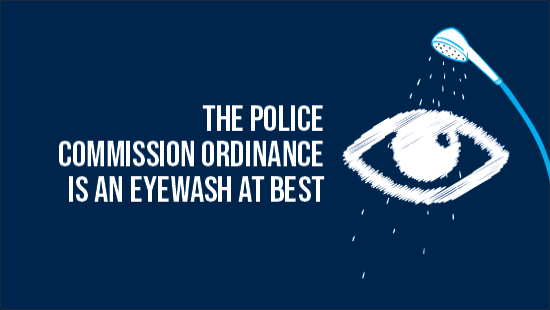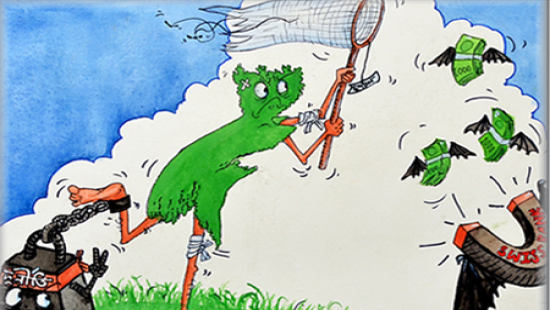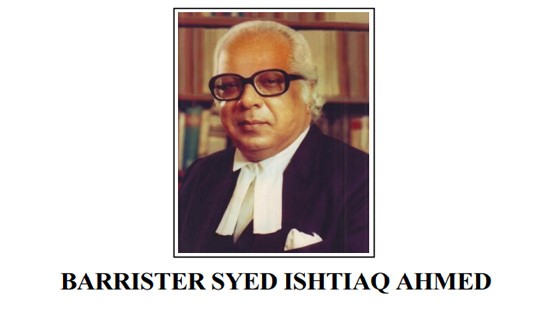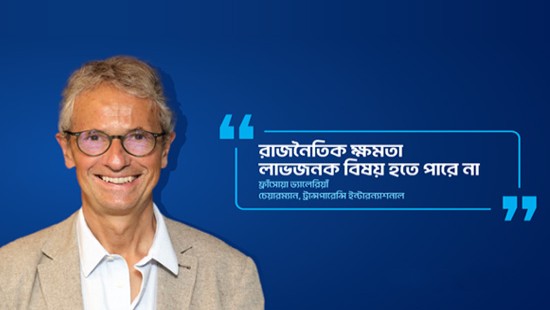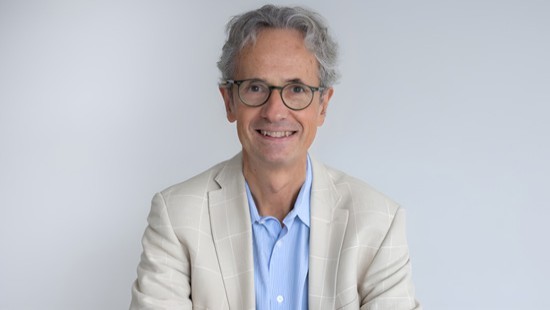Published: 12 March 2022
Two weeks after the brutal Russian invasion of Ukraine, how it may eventually evolve remains uncertain, given Russia's President Vladimir Putin's apparent mission of neutralising the neighbour—which could imply virtual annexation. The international community is helplessly worried over the humanitarian crisis unleashed by death and destruction, and the plight of the affected and displaced people, particularly women and children, whose fundamental rights are being grossly violated by the wanton acts of aggression by the Kremlin.
Putin is not the only warmonger in contemporary history, nor does it necessarily take an authoritarian ruler like him to wage international military aggressions. War is a violent use of force to promote geostrategic interests, more often perceived or even manipulated than real. Examples are not far to seek, as in recent cases of Iraq and Afghanistan, where the loudest preachers of democracy and human rights involved themselves in ruthless wars.
The difference in Putin's case is that he did not need to invent any fabricated logic to justify aggression before his domestic powerbase, which primarily consists of his cronies in a state almost completely captured by kleptocrats. Whereas his Western counterparts, "democratic" and "accountable" as they are, needed to innovate justifications, with or without success, to have served "national interest" or promoted "global peace."
The Western response to the Russian aggression of Ukraine, therefore, stands on tenuous moral ground, while their support to Ukraine is also circumscribed by perceptions of "mutually assured destruction," thanks to each other's nuclear capability. All they can do will, therefore, be limited to mainly economic and trade sanctions, effective or not, that also to the extent that the fallout does not become unbearable to themselves.
On the other hand, the "targeted sanctions" announced by powers like the US, the UK, Canada, the European Union (EU), Switzerland and Japan against Putin's cronies and their wealth and business interests that have been sustaining Kremlin's kleptocratic superstructure over the years, deserve particular attention. Leaving aside the debate on whether and to what extent these can eventually bear fruits, the question is: Why did Putin's cronies, many of whom were suspected of large-scale corruption, swindling of public resources and money laundering, find safe havens for their ill-gotten wealth in countries that are now boasting of sanctions in the first place? At the time when they were granted the coveted ownerships of super luxurious assets and enterprises, it was not unknown to the relevant authorities in those countries that these were principally ill-gotten wealth, nor was it unknown that these cronies were also the main source of power of Putin, serving to not only deepen and widen his unlimited and unaccountable authority in Russia, but also to bolster his international ambitions.
Abuse of power by Russian oligarchs and super rich under Kremlin's protection has made corruption a way of life in Russia, which is Europe's lowest ranking country in terms of credible international corruption indices, like the Corruption Perception Index (CPI) released annually by the Transparency International (TI). In CPI 2021, Russia scored 29 out of 100, well below the global average of 43. TI Russia reported that during 2008-2020, Russian officials acquired 28,000 properties in 85 countries—including EU member states. Investigative reports like Panama Papers and Pandora Papers have exposed the depth and breadth of Russian kleptocracy, including Vladimir Putin's alleged personal riches reportedly held for him by his inner circle.
Ironically, the Russian kleptocrats have relied, like their peers from around the world, on the financial system of leading democracies to invest and sustain their ill-gotten wealth transferred illicitly. The lion's share of global illicit transfers, in trillions of dollars a year, land in countries led by those now propagating targeted sanctions. In such destinations of illicit financial transfers, there exist legal, policy and regulatory loopholes as well as so-called expert services for secret deals of acquisition of assets and businesses. The recently disclosed data by Pandora Papers show, for instance, the growing role of the US as a heaven for illicit transfers as many of its states provide policy provisions to establish tax-free secret trusts as investment opportunities out of illicit transfers. Apart from offshore heavens, the developed economies are indeed the principal gainers of illicit transfers which are facilitated, promoted and sustained by various means—like secrecy of beneficial ownerships, banking secrecy provisions, weak supervisions, and lack of sanctions.
Ironically, the host countries of illicit financial flows are also among the strongest proponents against corruption, though implementation of their national and international anti-corruption pledges, especially policies regarding crimes related to money laundering, has been dismally low. The Ukraine tragedy caused by a brazenly corrupt regime of Russia appears to have worked as a wake-up call for them to go after some of the invaders' cronies. But it remains to be seen if these are only knee-jerk reactions or if, in fact, these announcements of sanctions will be followed by genuinely effective tracking down of the dirty money and assets, leading to concrete actions to hold kleptocrats to account—Russian as well as others.
By imposing sanctions against the Russian kleptocrats, not only has the efficacy of such sanctions been put to test in terms of their deterring effect on Putin, but the sanctioning countries themselves have also been exposed to a formidable challenge in their own jurisdictions. It remains to be seen if they can demonstrate the political will and institutional capability to implement concrete actions to bring to book cross-border corruption. It also remains to be seen whether they can adopt robust preventive measures to promote integrity, transparency and accountability of the powerful networks of law firms, trust companies, offshore specialists, real estate agents, accountants, regulators and banking and financial services companies that play the key role in facilitating the secret deals of the likes of Putin's cronies from around the world.
Dr Iftekharuzzaman is the executive director of Transparency International Bangladesh (TIB).
The Daily Star,
March 11, 2022

